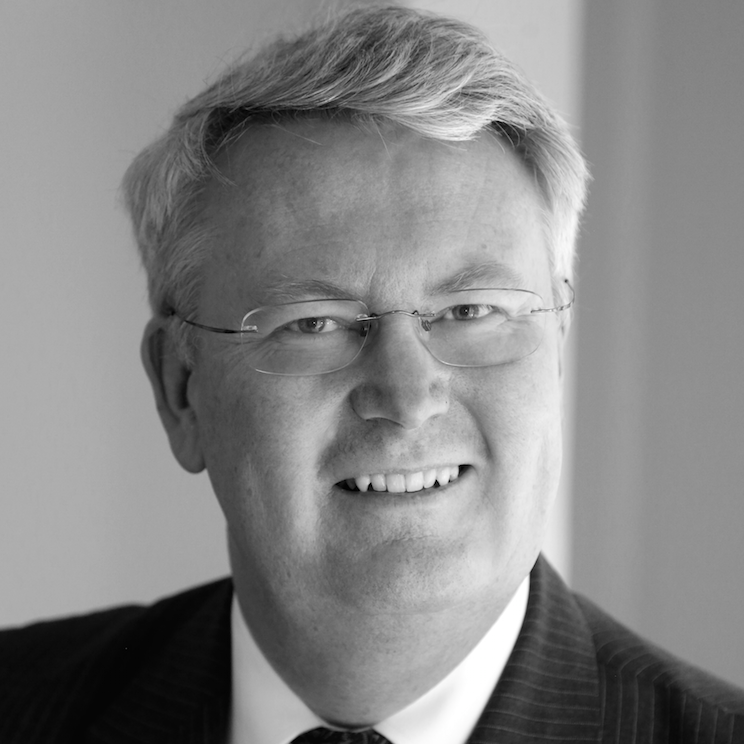The Executive Director of St. James Ethics Centre, Dr. Simon Longstaff, ruminates on the origins of ethical shortcomings in the banking and finance industry. He suggests that the majority of wrongdoers are not usually avaricious and manipulative characters, but in fact moderately decent people who are engaging in practices they consider commonplace. This needs to change, starting with the recognition of ethical standards and the inter-personal accountability perpetuated by The BFSO.

I am continually struck by how often linking the words ‘ethics’, ‘banking’ and ‘finance’ prompt a cynical response from people across all walks of life. Indeed, the response is so frequent that it has left me thinking that it comes as a kind of reflex – thought of as a cultural artifact that has taken on a life of its own, in which the stereotypical banker is caricatured as being greedy and inclined to ‘sharp practice’.
I think deep down, people must know that the reality is very different – that those working in banking and finance are just like the rest of us – moderately decent people wrestling with the daily ambiguities of life. Yet, at the surface level of the easy quip, the cynics reign.
On one level, this is easy to understand. The global financial crisis was the product of ethical failure – principally within core institutions in banking and finance. Even today, there are weekly reports in the global media of major institutions having engaged in practices that journalist, Steven Pearlstein, once described as not even coming close to passing the “ethical smell test”.
In short, some of the revealed practices ‘stink’ and in a world of moderate decency, should have been noticed at the time. It is this failure to have noticed the stench that leads so many people to wrinkle their noses at the mention of ethics in banking and finance.
However, the world of banking and finance is not unique in having failed to notice the early warning signs of ethical decay. Indeed, history is littered with examples of good people doing bad things – without having noticed the rot. If anything, this is the norm.
I am constantly struck by the frequency with which people explain to me that they are following a particular practice or course of action simply because ‘that’s what everybody does’ or because ‘that’s just the way things are done around here’. These will be the same people who will experience genuine shame when they review their conduct in the light of public scrutiny. But up until the light is shone on their conduct, they will be blissfully unaware that anything is amiss.
To be clear about this – the wrongdoers are mostly decent people who are engaging in practices they consider common-place. They will not be turning a ‘blind eye’ to mischief, as they do not see the mischief at all because they are blinded by unthinking custom and practice.
Of course, there are some people who know exactly what they are doing – those who are motivated by greed (or more powerfully, by ambition) and who are indifferent to the harm they cause to others. These people often exploit one of the most admirable characteristics of the world of banking and finance – the centrality of trust.
From its earliest days, trust has been essential, for without trust it would never have been possible to write a promissory note in Pisa and rely on it being honoured when presented in London. To this day, the world of banking and finance relies on the application of trust – if for no other reason that trustworthiness is infinitely less expensive than systems of compliance, regulation and surveillance. And it is this propensity to trust that the dodgy operators rely on as part of the mechanism by which they draw others into their mischief-making activities.
The aim of the Banking and Financial Services Oath (BFO) is to strengthen the ethical foundations of the industry and to ensure they are not misused. The key to this approach is inter-personal accountability – in that only individuals may be signatories, with each accountable to the others for upholding the tenets of the Oath.
One of those tenets requires signatories to speak out against wrong-doing and to support others who do the same, and the importance of this should not be under-estimated. Most professional codes have a clearly articulated disciplinary framework. Typically, they are good at punishing those who do wrong, however, they do relatively little to stand beside those trying to do what is right. In this respect The BFSO aims to redress the balance – offering support from the signatories as a whole (some of whom will be very influential) while holding all to account.
Beyond this, The BFSO aims to be an arena within which questions can be posed about issues of core concern – thus testing ‘conventional wisdom’ that can lead people to be blind to the mischief they might be doing, albeit inadvertently.
There is an important role for formal regulation and surveillance of the industry by governments and their regulators. But as we have seen, this cannot be enough. It is far better that regulation be complemented by measure developed and applied by those who make up the industry.
The BFSO is still in its infancy – growing by word of mouth. I hope that a new generation will see their own aspirations reflected in its ideals – recognising the opportunity it provides to shape a global industry, one person at a time. Perhaps then the mention of ‘ethics’, ‘banking’ and ‘finance’ will be met by healthy skepticism (always a good thing) – rather than the corrosive cynicism that one encounters today.
Dr Simon Longstaff is Executive Director of St James Ethics Centre www.ethics.org.au